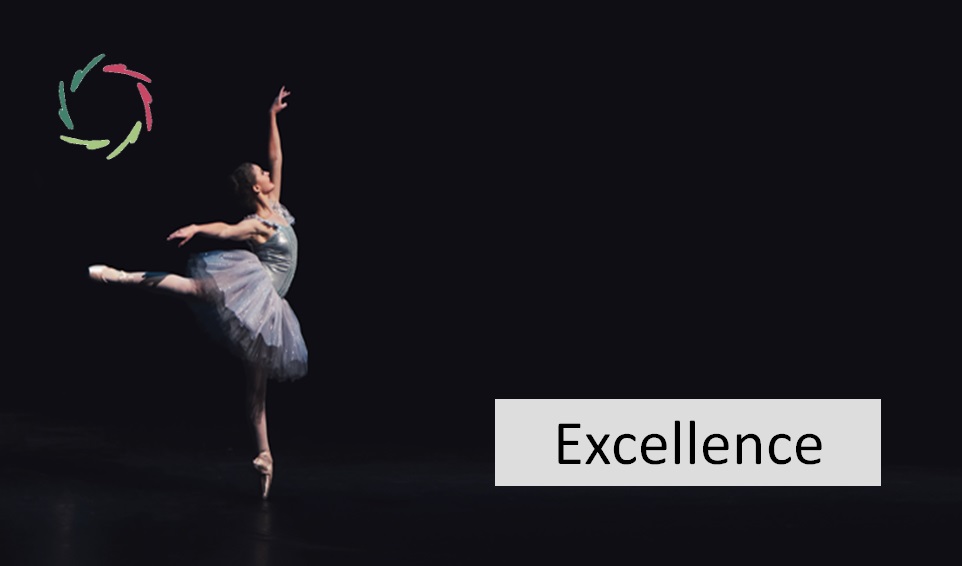Excellence

One should not be apprehensive to excel as long as this does not interfere with human value. There is a natural drive to excel and that’s perfectly OKAY.
[see also: ‘Being of Value’]
ἄριστος (aristos)
= ancient Greek for ‘excellent’ or ‘outstanding’, being apart / above the rest. You recognize it in the term ‘aristocracy’. This may bring a negative connotation of elitism, especially in comparison to democracy. It brings pictures in mind of a ‘ruling class, having money and power’ and holding down the rest of society.
Even more: imagine this in combination with genetic modification of one’s children… The ‘Uber-Mensch’ is not far away.
So, should one not strive for excellence?
I think one should. It’s a human natural propensity to want to excel and even to be admired for it. Practically any child wants to excel in the eyes of his/her parents, one way or another, and to be admired for it. If properly supported, this may linger on during one’s lifetime.
There is nothing wrong with that. However, I see some caveats. I bring these by way of what ‘excellence’ may / should be, while not exhaustively:
Excellence =
- a striving, not a fixed characteristic
- deeply valuing oneself in one’s striving for excellence
- knowing that ‘the best’ is not more humanly valuable than anyone else
- not feeling frustrated when not reaching the top the heap
- still striving towards that top, in an ego-transcendent way, giving ‘the best of oneself’
- being proud of doing so and also being proud of having done so in the past
- helping others in their striving, in a most generous way
Is this a plea for a competitive spirit?
I guess so. I also hope that the above characteristics show how competition can and should be experienced in a most friendly way. Let me put this clearly:
Friendliness first!
It’s a necessary condition for a competitive spirit to be worthwhile in the first place. Of course, I mean friendliness of the competitive person but also of those who support him/her and of all people concerned. Probably first of all – if there is one – the coach.
In (very) many cases, I don’t see this standing at the forefront. In a ‘the winner takes it all’ kind of competition, there is mostly only the winning that counts. I would put contrary to this: it’s the winning in excellence that counts. Excellence necessarily encompasses friendliness.
[see also: ‘The Concept ‘Kindness For the Total Person’]
Children at school
‘Equal opportunity to every child’… Sure, this is an excellent endeavor that should be a priority in the schooling system. However, is it ideal to downgrade children towards the common base?
Or: should every child be given equal opportunity to (strive for) excellence? I think this is the better way in view of the above caveats and maybe some more. There is much room for investigation and discussion. At least, with this in mind, we can think about how to realize it. As a matter of fact, it leads to very different pragmatic measures.
The ‘ruling class’?
This would be aristo-cracy in the sense of: power to those who excel… in what? Plato thought it would be the philosophers’ job. He even tried to implement it (in Syracuse, +/- 360 BC). His attempt deplorably failed. Can we do better?
I see a possible combination – in principle at least – with democracy when ‘excellence’ is validated as such in most of society, starting with schooling. This can then be an excellence of many sorts – again – with the above characteristics. People who really give ‘the best they can’ in a most humane way, get elected. Democracy itself becomes – much more – excellent this way.
I know: it’s Utopia.
But imagine… and may not every step towards it be worthwhile?


